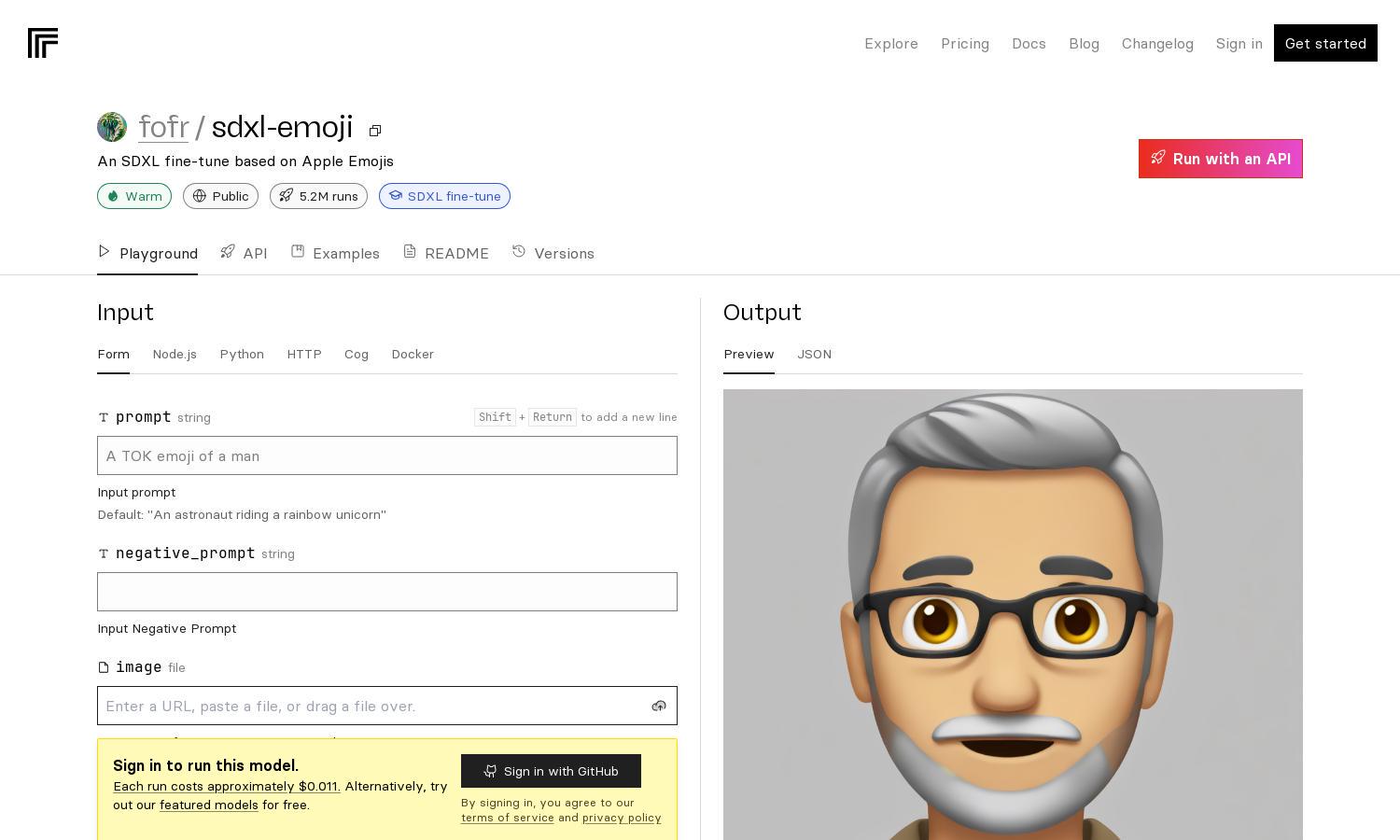Replicate

About Replicate
Replicate is a versatile platform tailored for developers and creators looking to harness the power of AI in content generation. Utilizing advanced machine learning models, users can easily generate unique artworks, such as emojis, through a user-friendly API, solving the challenge of creative content production.
Replicate offers flexible pricing plans tailored for diverse needs. Each run costs approximately $0.011, with options for featured models available for free. Upgrading allows users to unlock additional features and enhance their content creation capabilities for more efficient workflows.
Replicate's intuitive user interface emphasizes easy navigation and efficiency. The clean layout allows users to quickly access various features, including documentation and model testing. This design enhances the overall user experience, making content generation with Replicate seamless and productive.
How Replicate works
Users begin interacting with Replicate by setting up an account and obtaining an API token. After installation of the client library in Node.js or Python, users can easily run the desired model by specifying input parameters such as width, height, and prompts. With clear documentation and examples, navigating Replicate becomes a simple process, making AI-powered creativity accessible to everyone.
Key Features for Replicate
API for AI Models
Replicate's API allows users to effortlessly run powerful AI models with simple coding commands. By integrating this functionality, users can create custom artwork or generate unique outputs based on specific prompts, showcasing the versatility and power of Replicate.
Flexible Output Customization
With Replicate, users can customize output parameters like image dimensions, prompts, and processing techniques. This flexibility ensures that every generated output aligns with user needs, enhancing the creative process and enabling distinct artistic endeavors tailored to individual tastes.
Multi-Language Support
Replicate supports both Node.js and Python, catering to a wide range of developers. This multi-language approach enables users to choose their preferred coding environment, making integration smooth and accommodating various programming proficiencies for enhanced user accessibility.








